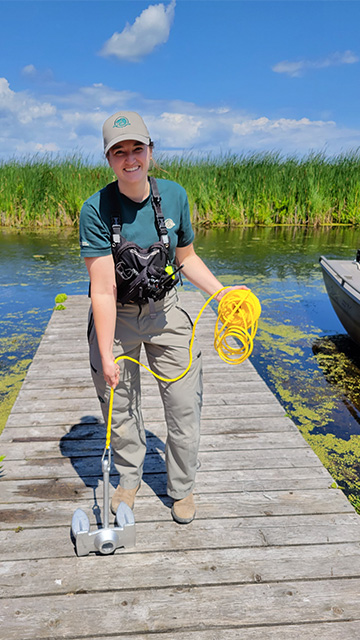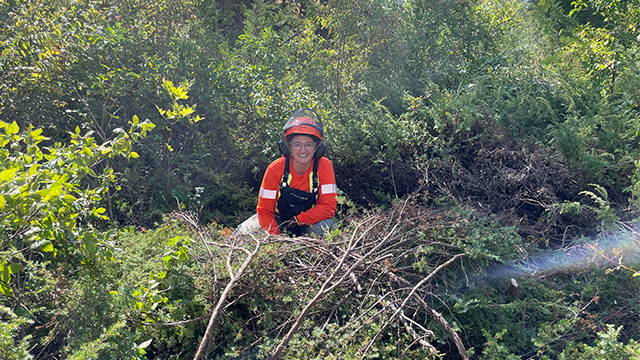Meet Crystal Antaya
Point Pelee National Park

Job Title
Acting Ecologist Team Leader
What was your education/career path?
I completed my Bachelor of Science in Behavior, Cognition and Neuroscience at the University of Windsor. Initially I thought I wanted to be a doctor, but fell in love with ecology in my second year, and fortunately had the flexibility in my program to focus the rest of my studies on ecology and conservation. After finishing my undergraduate degree, I immediately jumped into my Master of Science at Trent University where I studied Sandhill Crane genetics. From there, I had the opportunity to travel across Canada doing what I loved the most – mostly chasing birds while working for research, the private sector, and different levels of government.
What drew you to Point Pelee? When did you first start working at Point Pelee National Park?
Point Pelee is very close to home and was always a special place to me. I grew up taking trips here with family, school, and girl guides. After travelling all around Canada for work, I knew I wanted to be able to return home and still continue the work that I love doing, so I jumped at the chance to start working at Pelee in 2022.
What do you do for Parks Canada?

Currently I am working as the Park Ecologist for Point Pelee. My main job is to lead our monitoring and restoration programs in the park. We do a lot of different kinds of monitoring throughout the park for species at risk – like Eastern Prickly Pear Cactus and Five-lined Skink, bird monitoring, invasive species monitoring, tree and shrub monitoring, etc. All these programs generate lots of data, which I analyze to determine the health of our ecosystems. I use that information to track how well our restoration programs are working and help make decisions about future projects and monitoring programs. I also work with external partners and researchers to learn more about the park, its habitats, and wildlife. Every day is different and brings new challenges and successes!
What would you tell a young girl about working in science, technology, engineering and mathematics (STEM)?
In the words of the iconic Ms. Frizzle: take chances, make mistakes, and get messy! Embrace the challenges along the way. Being a good scientist doesn’t mean being the smartest person in the room or knowing all the answers right away; it means being willing to persevere, learn new things, and get a variety of experiences. Don't be afraid of making mistakes; they’re an important part of learning new things. Science isn’t a glamourous job; it takes perseverance and passion. In the conservation field, sometimes that means working long, hot, sweaty days doing physical labour or falling in the marsh and getting covered in mud. Not every day is easy, but in the end, pursing a career you love is worth it.
- Date modified :